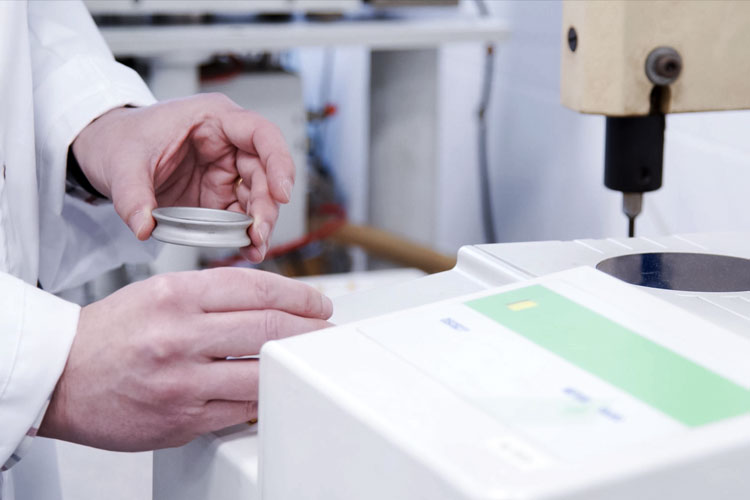With Process Analytical Technology (PAT), it is possible to monitor the reactions that take place in the Flow Chem Unit reactors. Moreover, any substance or mixture can be characterized with the equipment in the Thermal Analysis Laboratory (DSC and TGA).

The Continuous Chemical Processes Unit (Flow Chem Unit) installed at the CTPTI benefits from support and collaboration with the IQS synthesis and analysis laboratory services, opening up the possibility for the comprehensive development of safer, faster, and cleaner chemical processes.
In addition, the Flow Chem Unit has online analysis equipment directly connected to the continuous reactors, enabling the online control of the processes on which it is working.
Process Analytical Technology
The techniques known as PAT, or Process Analytical Technology, have developed considerably in recent years almost in parallel with the development of flow processes, due to their key role.
They consist of automatic and continuous analysis techniques of physical properties of the spectroscopic type, such as viscosity or density, or even chromatographic or nuclear magnetic resonance in some cases. Thanks to PAT, process development is much faster and more robust. However, its great utility lies in the monitoring and control of the process once implemented, according to the continuous production guidelines promoted by the FDA.
The Flow Chem Unit features things from the traditional UV-visible technique to other more innovative techniques such as Raman and FTIR spectroscopies. All of them are ready to be connected to the flow reactors, both in the ASIA and the TITAN devices from the Syrris brand, as well as in other in-house devices we have developed, and to monitor the processes continuously.
Thermal Analysis Laboratory
The proximity of the IQS Thermal Analysis Laboratory guarantees the exhaustive study of the thermal stability of new processes and products, ensuring a high level of security for all developments in the Flow Chem Unit, as well as facilitating the identification and characterization of pure substances and mixes.
The IQS Thermal Analysis Laboratory has different Differential Scanning Calorimetry (DSC) and Thermogravimetry (TGA) equipment. With this equipment, any substance or mixture can be thermally characterized: melting point, purity analysis, thermal stability, specific heat, presence of polymorphs, crystallinity, heat of reaction, humidity, crystallization waters, polymer loads, and so on, as well as any phenomenon that generates or absorbs heat or causes a loss of mass of the sample.
The DSC covers a temperature range from -80 ºC to 600 ºC. In the case of TGA, the range goes from 30 ºC to 1,200 ºC.
It is worth noting that these are the two devices that we use for some of the services we provide to the pharmaceutical industry, within the NCF environment, according to the AEMPS and the Government of Catalonia Health Department certificates of compliance with the good manufacturing practices on quality control activities for active ingredients, medicines, and raw materials in general related to marketed medicines and medicines under research.










